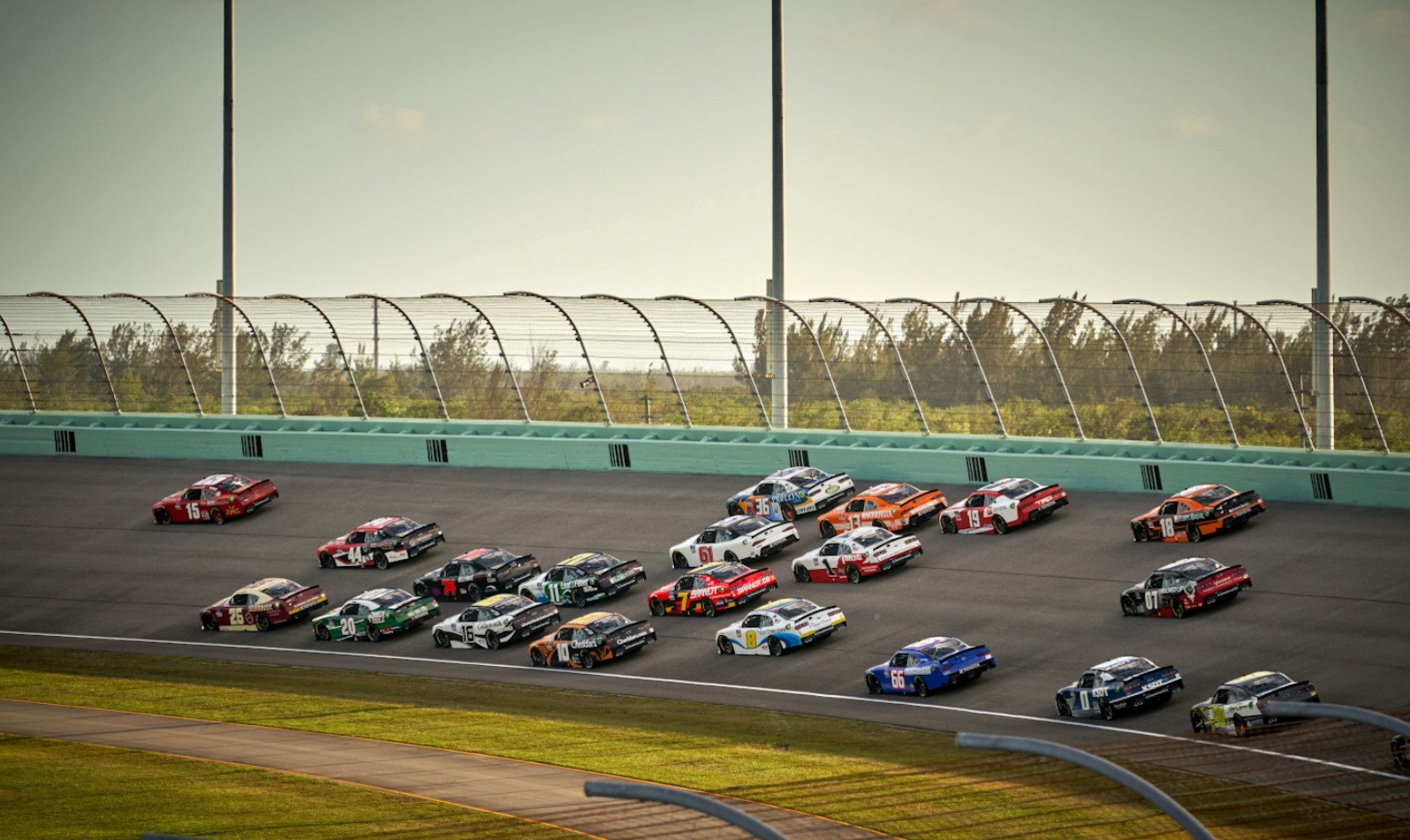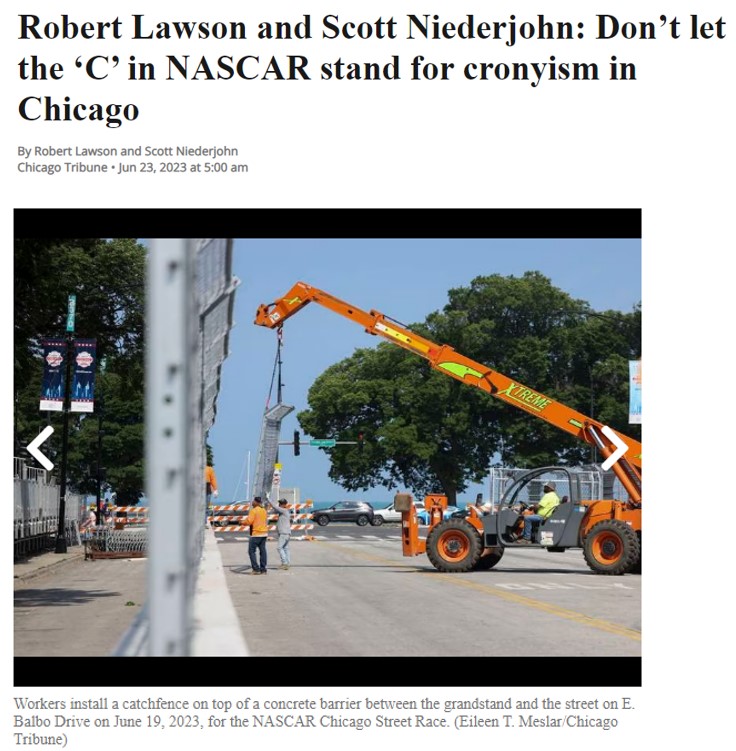
Will the Chicago NASCAR street races really bring economic benefits for the Windy City? These economists say no.
Setup for the inaugural NASCAR event in Chicago is off to the races. A three-year deal that former Chicago Mayor Lori Lightfoot signed into existence will bring stock car drivers to the Windy City for a competition that’s a first of its kind in more ways than one.
Typically, NASCAR races take place at privately owned tracks that are specifically designed for spectators. The Chicago NASCAR races will instead utilize existing city streets: a 2.2-mile circuit that will take drivers past some of the city’s most iconic landmarks and most notable streets. As one could imagine, traffic will be significantly impacted for the two-day event. Temporary stands and event staging is being erected. It’s a massive undertaking.
But will the bottom line be worth it for Chicago? NASCAR officials say yes. Concordia’s Scott Niederjohn and fellow economist Robert Lawson say not so much.
Niederjohn, a professor at CUW, serves as the director of the Concordia Free Enterprise Center. Lawson is an economics professor and director of the Bridwell Institute for Economic Freedom at Southern Methodist University’s Cox School of Business. Both share a passion for car racing.
In the media
On Friday, the Chicago Tribune published their co-authored op-ed titled, “Don’t let the ‘C’ in NASCAR stand for cronyism in Chicago.” Click below to subscribe to the Tribune to read their piece, or scroll on to read a few key points.

Chicago NASCAR Takeaways
- “Almost all racetracks are privately owned by entrepreneurs trying to make a buck. … However, if the other major sports can slop up billions of dollars from the taxpayer trough through publicly financed stadium deals, for how long can the two premier racing series in North America – NASCAR and IndyCar – resist the urge to join in the feeding frenzy? The answer, sadly for NASCAR at least, is that they can’t.”
- “The costs to the city have not been well publicized, which suggests a lack of government transparency. Still, news media reports suggest huge and ill-specified subsidies are involved.
- “Undoubtedly, city leaders will point to the intangible ‘benefits’ to the city of having NASCAR in town. Though a NASCAR-commissioned report estimates an economic impact of $113 million, neutral analysts view such studies as unreliable.”
- “With the sharply limited seating available on a street circuit compared with a fixed road course or oval track, prices are at least two to three times higher than for normal races. …(And) unlike regular racing venues where you can bring in your own food and beer, outside food and drink are banned at the Chicago races. Fans can count on adding a couple of hundred extra bucks, given festival prices.”
- “On the NASCAR Cup schedule, the Chicago street race venue replaces Road America in Elkhart Lake, Wisconsin. Did this legendary American racing venue lose out to Chicago in free and open market competition? No, the privately owned Road America lost this event to a government-subsidized deal. … Road America lost because Chicago politicians subsidized NASCAR with money that they took from Chicago residents.”
Want more?
Niederjohn oversees the Concordia Free Enterprise Center (CFEC). CFEC promotes the ideals of a free and virtuous society, which ultimately unleashes the nearly unlimited creative potential of the human spirit while producing remarkable levels of economic and human flourishing.
Check out their upcoming events.